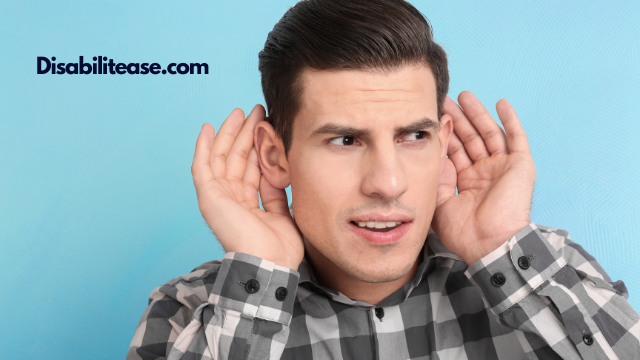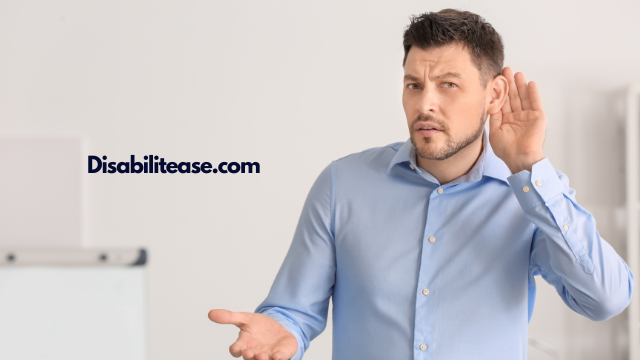Can Dyslexia Affect Hearing? Dyslexia is a widely known learning disorder that can cause reading and writing problems. However, new developments show compelling evidence that the condition may be much more than just a learning difficulty.

New data shows that Dyslexia may be linked to a wide range of auditory processing disorders. Previously, it was believed that the condition only causes problems with processing language making reading comprehension, spelling, and writing the primary symptoms. It is now becoming increasingly evident that affected individuals also have difficulty processing sound.
One comparative study found that Adults with Dyslexia struggle to recognize certain voices and relate them to known characters.
Another recent study compared brain activity within the areas responsible for processing and decoding the sound structure of most spoken and written words.
We have a related article for you, you can read Can Your Dyslexia Flare Up?
The children with Dyslexia showed significantly lower activity than ordinary readers with no diagnosed disorders.
Table of Contents
Can Dyslexia affect Hearing? What is Auditory Processing Disorder?
Auditory Processing Disorder (APD) is a neurological condition that affects one’s ability to process sound due to an abnormality within the central auditory nervous system.
The abnormality leads to significant impairment in the brain’s ability to clearly and accurately process different sounds for everything, including words, letters, digits, and conversations.
However, it still cannot be classified as hearing impairment and causes only minimal changes in the processing abilities. The disorder becomes more evident in cases of less pronounced speech, smaller phonemes, similar words, and a noisy environment.
An undiagnosed APD can lead to unnecessary years of reading difficulties and instructions. The disorder impacts children’s ability to process sound units that makeup words.
A brain imaging study found that an abnormal auditory central nervous system can make it harder for the brain to differentiate between consonants and develop adequate phonological skills.
Psychologists and assessment experts also observe that children with ADP often struggle to understand some parts of the conversation. They also tend to frequently use words such as “what?” or “huh” to request the other person to repeat their sentences.
Experts estimate that nearly 70 percent of Dyslexia cases are accompanied by a less apparent Auditory Processing Disorder. NIH also provides definitive data showing the presence of APD in nearly 43 percent of individuals referred for some form of learning difficulties.
Along with this, 25 percent of all children with a proper diagnosis of learning disabilities had ADP along with Dyslexia.
Causes for Low Awareness
Despite being a widely coexisting disorder along with Dyslexia, awareness of ADP is still relatively low. Dyslexia-related hearing problems can often go undetected for years due to the flaws in current assessment boundaries.
Dyslexia is diagnosed with the help of verbal, reading, comprehension, and spelling tests. Most assessments are heavily dependent on performance related to the final results of reading, spelling, and comprehension abilities. This leaves out the possibility of a hearing problem being detected.

Moreover, professionals trained for dyslexia assessment do not have the necessary knowledge needed to diagnose an auditory disorder. It is typically diagnosed with the help of educators, psychologists, and speech-language pathologists.
On the other hand, ADP is best assessed by a specialist audiologist working within the domain of the central auditory nervous system.
This has led to much interest in reaching the root cause of Dyslexia. For decades, most educators, psychologists, and researchers have been content with the standard phonological and visual difficulties being concluded as the primary cause.
The new hearing implications of Dyslexia have paved the way for new concerns and discoveries. While Phonological and visual challenges are the factors that cause difficulties with reading and writing, many now wonder what causes these influential challenges in the first place.
Risk Factors
It is important to note that Dyslexia doesn’t inherently cause hearing problems. Moreover, the hearing problems are also not a definitive symptom present in all cases of Dyslexia. Just because one has Dyslexia doesn’t mean they will go through any sound processing or spoken language processing disorders as well.
Conditions such as Auditory Processing Disorders are more closely related to a specific subtype of Dyslexia. Being a spectrum of different learning difficulties, Dyslexia has more than 10 subtypes with varying symptoms and causes. The main subtype that accompanies hearing problems more commonly is explained below.
What is Auditory Dyslexia?
Auditory Dyslexia happens when a person finds it hard to clearly understand the distinct sounds each letter and word is made up on. This inability prevents affected individuals from attaching visual meaning and structure to each letter leading to low phonological awareness. In such a case, individuals might:
- Confuse similarly-sounding words such as “bat” with “bak”, “vat” or “dat”.
- Make spelling mistakes due to errors in their hearing, as they write what they hear rather than what is being said.
- Process the same sound differently in each instance, so “b” might sound like “d”, “e”, and then “v” when said multiple times.
It’s important to note that the hearing abilities with auditory Dyslexia are still undamaged. The main problem arises from how the brain processes and understands different sounds. This means that while affected individuals may hear each word and sentence perfectly, the brain can distort its structure and make it less clear.
Conclusion
Dyslexia is not directly linked to hearing problems but often coexists with common sound processing disorders. While a root cause can’t be established, multiple studies agree that Dyslexics perform poorly when it comes to registering the smaller details within the spoken speech.
Also, you have to check out my post on Can Dyslexia Affect IQ Scores?
The differences, however, are minimal and can only be observed under systematic, in-depth studies. An affected individual will therefore maintain great hearing and listening abilities despite having severe symptoms of Dyslexia.
Most problems usually arise when words are exchanged within a noisy environment, said at a low volume and too quickly. A more pronounced spelling of each word can help people overcome common auditory processing challenges.

Hi, my name is Eddie, I am a professional trainer specializing in the elderly population and I’m also a website designer. I love training in the gym, going to the beach, traveling, and having good food.
I combined my love for sport and website designing to make “DisabilitEase” whose purpose is to help elderly and disabled people live a more full and active life, have more fun, and enjoy their unique journey despite any disability.



